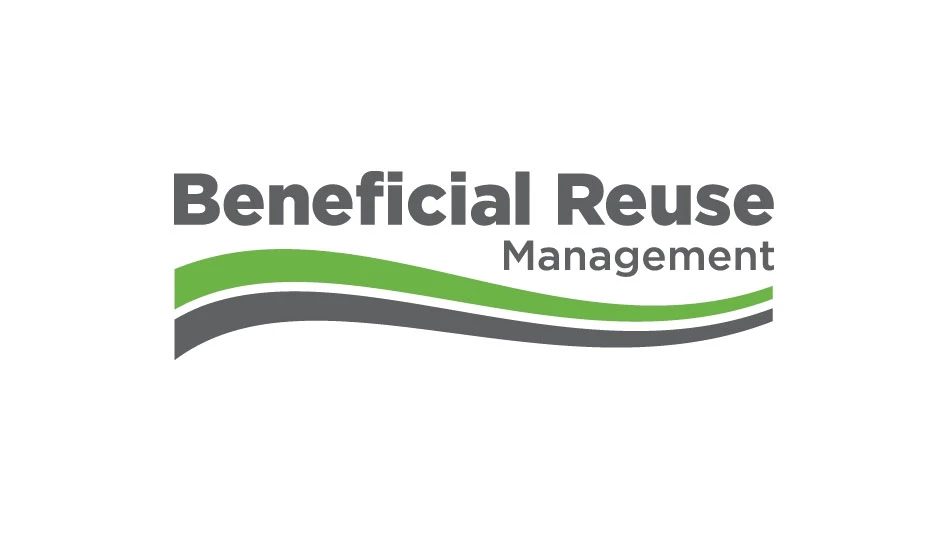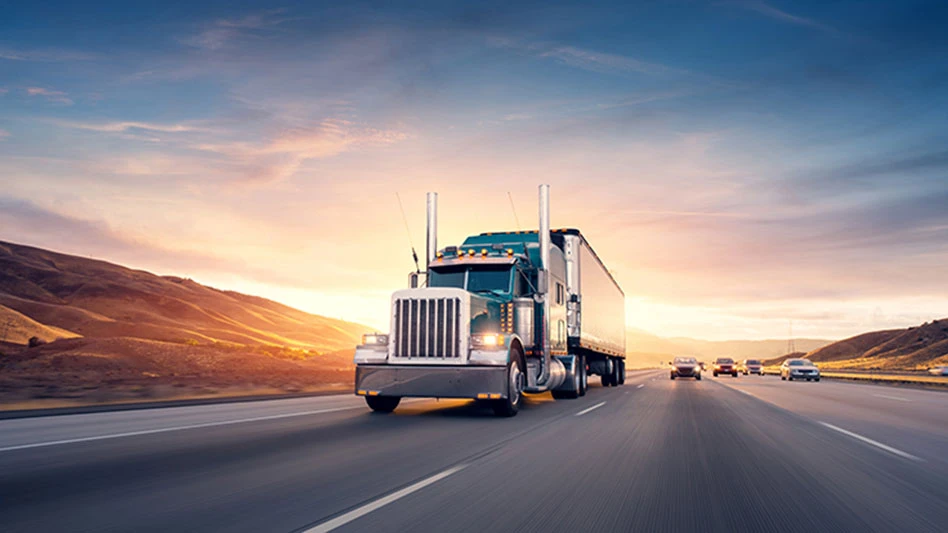

Born into a family with deep roots in the hauling industry, Kerri Mead-Bell—president of Clayton, North Carolina-based Anchor Disposal—jokes she and her sister “steered trash trucks before [they] could even walk.”
Introduced to the ways of the waste world from a young age, Mead-Bell witnessed firsthand the growth of her family’s business, New York-based Superior Disposal Services Inc., and subsequently helped run its subsidiary, Virginia-based KerKim Inc., dba SDI Disposal, alongside her father, Ken Mead.
While Mead-Bell says that “trash runs in her blood,” she admits she never expected it would become her full-time occupation. She began her career as a child care director, but she says her father asked her to join the family business full time in 2001.
“I tried to fight it and [was] a child care director for about five years, but he kept telling me, ‘No, trash is where you belong,’” Mead-Bell says.
This statement held true as Mead-Bell proved herself to her dad, working her way up the ranks of SDI in various positions before finishing her time at the company as vice president of marketing and sales.

“I have done it all from hand scraping and sanding containers, loading, collections and sales to driving the trucks,” she says. “I definitely had to prove [myself]; he’s an old-school trash man, and you had to earn your respect.”
SDI was sold to County Waste of Virginia in 2011, a company that would be acquired in 2020 by Canada-based GFL Environmental Inc. This decision was made, in part, because Mead-Bell’s sister, SDI Vice President Kim Mead, suffered a major stroke.
It wasn’t until four years later that Mead-Bell; her husband, Chico; Kim; and her brother, Justin Brion, decided to start their own waste company.
“So much had transpired in those last four years with Kim surviving a near-fatal stroke that the four of us wanted to make her feel as though she was still a part of something,” Mead-Bell says. “We wanted to make sure she lived a purpose-filled life. Our decision that day would forever impact our family.”

Making the most of it
Subject to a noncompete agreement in the state of Virginia, Mead-Bell and Brion began to scout a potential home for the company, ultimately settling on Clayton, North Carolina. The family members, all of whom had their own unique upbringings in the waste industry, opened Anchor Disposal in January 2015.
“My sister and I were pretty much born into it. … [Whereas] our brother, Justin, was adopted into our family and into the trash world at a much older age,” Mead-Bell says. “My husband, on the other hand, grew up watching and helping his grandfather who worked as a county garbageman for 35 years.”
Taking advantage of their combined experience, the team—under the leadership of Mead-Bell and Brion—worked tirelessly to get Anchor off the ground.
“In the beginning, we only ran three days a week and had not fully transitioned to North Carolina,” Mead-Bell says. “We had no clue where we wanted to live yet, so Justin, myself and my husband would drive down on a Tuesday at 3 a.m., stay in a hotel and drive home late Thursday night after the routes were done to spend the weekends with our family.”
She adds that it took a lot of focus and dedication during this period to maximize “every minute that [they] had” at the Anchor facility.
“We were working a ridiculous amount of hours,” Mead-Bell says. “The times that we were here, we were trying to get as many customers [as we could]. Justin and Chico did the routes … and I did every bit of marketing, answering the phones and everything else.”
The group did this for six months before moving closer to the Anchor Disposal facility.

A shifting perception
Facing a market that previously had dealt with high company turnover mostly because of acquisition activity, Mead-Bell says it was challenging at first to solicit customers.
“The majority of waste companies in business before us operated for a few years and then sold their businesses to large corporate operations,” she explains. Because of the local sentiment surrounding waste haulers, Anchor Disposal needed to use different tactics to gain traction.
“It did take us a little bit longer than we thought, but once people saw our customer service, we had customers,” Mead-Bell says.
She says Anchor Disposal was able to prove itself through its service, gaining faithful customers in the process. Mead-Bell adds it’s particularly important for small businesses’ customers to “see that you do what you say you’re going to do.”
Since the company’s start, it has grown from zero to more than 20,000 residential customers throughout Johnston and Wake counties and a portion of Harnett County—a market area that Mead-Bell enjoys for its “small-town feel.” The company also has expanded its fleet from one to 13 trucks.
That small-town feel has enabled Anchor Disposal to become involved in the community it serves in ways that might not be possible in larger cities.
“Community outreach and referral business remain cornerstones of our business model,” Mead-Bell says. “Citizens in our community know that we are personally invested in the area; they know we are making a difference.”
“I grew up in it, and I’ve been in it my whole life. So, I feel like I do have an advantage, and that’s some of the reason why I like to help other small haulers.” – Kerri Mead-Bell, president, Anchor Disposal
Although Anchor Disposal has found its niche in the central North Carolina market, Mead-Bell says small haulers still face obstacles.
“You’re … a small fish swimming in a big sea; it’s hard,” she says. “When it comes to purchasing items, we don’t have the purchasing powers like the big guys do. When your trucks break down, you don’t have as many spares, especially with the way the market is.”
However, Mead-Bell and the Anchor Disposal team work to combat these adversities, including by cooperating with local competitors.
“By working together with your competitors, we smaller haulers get to have more buying power,” she says. “The smartest thing is buying all the same trucks.”
Mead-Bell says her fleet consists of chassis from Greensboro, North Carolina-based Mack Trucks and truck bodies from Scranton, Iowa-based New Way Trucks. The truck bodies are purchased from Amick Equipment, based in South Carolina, and the chassis are from TranSource Inc. of Raleigh, which has locations throughout North Carolina.
By using truck parts that are familiar to mechanics and available at most dealerships, Mead-Bell says sourcing parts and performing maintenance becomes much easier.
“Everyone thinks you have to be some kind of enemies with competitors, but here we’ve formed this group [of both suppliers and haulers] … and almost all of us have gone out and helped each other when a truck has gotten stuck or broken down,” she says. This camaraderie extends to other aspects of the job as well, such as fleet software recommendations and insurance advice.
“We all work together because there’s definitely enough trash out here for all of us,” Mead-Bell adds.

Finding community
In addition to forming beneficial relationships with surrounding haulers, Mead-Bell has joined industry groups such as the Washington-based National Waste & Recycling Association (NWRA) for guidance and networking.
“By being a part of the NWRA, I am able to have someone going up to fight for me regarding different laws and regulations … in the waste industry,” she says, adding that being on boards like the NWRA Women’s Council has helped build her confidence.
“[The Women’s Council] has been the best thing ever for me because those are 100 percent my people,” Mead-Bell says. “We come from all over the U.S. and Canada, and we all feel like we’re alone. But when we come together, we feel empowered … we just feel stronger and bigger.”
As majority owner of Anchor Disposal, Mead-Bell says running a woman-owned business can come with its own hurdles.
“All the time, I get looked over, or information gets passed instead to any man that’s standing around me,” she says. “And phone calls—I call and call and call and send emails to important people, and they do not get [responses]. But other companies in the area will do the same thing, and they’ll get responses right away.”
Mead-Bell doesn’t let this stop her, though, making the most of her resources and making a difference where she can. Through her NWRA work and experience in the industry, Mead-Bell says she has developed a passion for helping small haulers, whether direct competition or states away, and empowering women in the hauling industry.
“There’s so much to stay up to date with, so being a member of something like [the NWRA] or using the buying power of larger companies helps small haulers compete and keep up with the ever-changing laws and regulations,” she says. “I grew up in it, and I’ve been in it my whole life. So, I feel like I do have an advantage, and that’s part of the reason why I like to help other small haulers.”

Creating a lasting legacy
As Mead-Bell continues to build upon the 130 years of combined solid waste experience in her family, memories of her upbringing have motivated her to follow in her parents’ footsteps.
“My mom, Sue, managed to care for my sister and me all while [helping run]the business, signing new customers and initiating billing and accounts receivables. Looking back on it now, I don’t know how she did it all,” Mead-Bell says, adding that her mother remains in the industry as a partial owner of Anchor Disposal.
Mead-Bell says she has a similar fondness for her dad, whom she saw as “Superman” in her younger days.
“He could move mountains in my eyes,” she says. “The things he did in New York and Virginia and the lessons I learned while working beside him helped to catapult me to where I am today. I am forever grateful to have learned all I did from him.”
This affinity for the industry and the people within it has helped propel Anchor Disposal to heights Mead-Bell had only dreamt of just seven years ago. Striving to act as a stable force within the dynamic waste industry, Anchor Disposal hopes to remain a mainstay in the Tar Heel State.
“I always have ideas in my head [on how to better the business]—always. It’s just a matter of timing. In business, timing is everything.”

Explore the October 2022 Issue
Check out more from this issue and find your next story to read.
Latest from Waste Today
- REI outdoors retailer hits zero waste target
- Minnesota awards $1M in waste reduction grants
- Nashville inches closer to establishing standalone solid waste department
- Los Angeles Sanitation and Environment wins brownfields grant
- Bain & Co. sees distant chemical recycling timeline
- Terex Ecotec launches new windrow turners
- FortisBC, Waga Energy open RNG facility at British Columbia landfill
- WasteVision AI partners with Samsara





